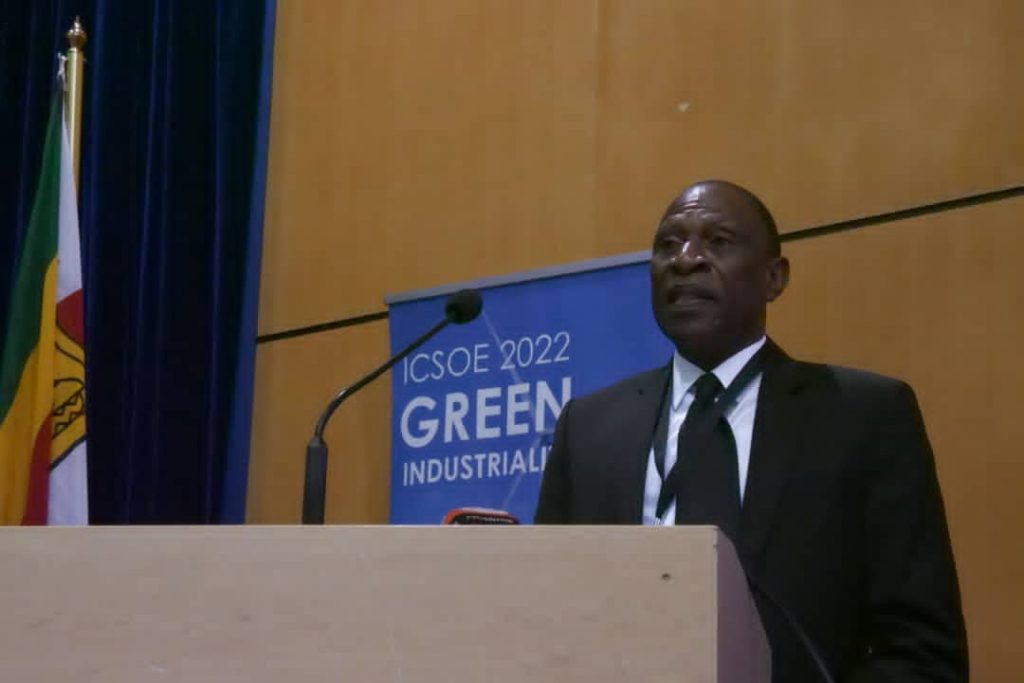The United Nations Economic Commission for Africa (ECA) has told its member states that there is a need for them to pursue green industrialization. It has been indicated that green industrialization is the only sure way for them to prevent externalizing their individual country’s challenges.
Virtually speaking at the opening of Inter-Governmental Committee of Senior Government officials and Experts (ICSOE) on Wednesday in Maputo, the ECA acting executive secretary, Antonio Pedro, said that green industrialization holds the key to ending unemployment and nurture development in the Southern African region.
Said Pedro, “In order to accelerate green industrialization, the region needs infrastructure that is resilient and fit for purpose. The current conditions of enabling infrastructure like ports, interlinked highways and feeder roads is not sufficient. Unreliable electricity and prolonged blackouts being experienced in many members states in the region needs urgent attention if the dream of green industrialization will have to be realized.”
The 28th ICSOE forum is expected to have robust discussions around the theme of green industrialization in order to come up with recommendations that can be taken forward, individually and collectively as the Maputo consensus on green industrialization in Southern Africa. Even more important, would be for us to look back in the near.
The ICSOE bureau has been chaired by Malawi for the past twelve months until this meeting where Mozambique has been elected chair. According to Rhino Mchenga, who is deputy director, Economic Affairs Department, Ministry of Finance, in Malawi, said that the current meeting is building on what was discussed during last year’s meeting where they deliberated on strategies to support the region to build back better, post Covid-19 including —through inclusive industrialization, in agro-processing and commodity-based industrialization, manufacturing, and regional value-chains development.
Mchenga also said that Southern African region is set for a rebound or even better this post the Covid 19 pandemic. He however was quick to add that the region is still plagued with exacerbating effects of Covid 19 characterized by poverty, unemployment, and inequalities.
The COVID 19 pandemic strongly affected member States that depended mainly on tourism and commodity exports. This was worsened by the lock downs, border closures, supply chain disruptions and slow vaccination progress among other factors.
Said Mchenga, “The ongoing Russia-Ukraine conflict has not made it any better — the conflict continues to subdue economic activity and thus stifling global growth prospects in our region. As you may have noted in your different member States, the Russia-Ukraine conflict has affected global fertilizer markets, mainly due to production decline falls in Russia therefore impacting on global supply and prices —including in the Southern Africa region.”
African Union Southern African Regional Office director, David Claude Pierre in his comment said that industrialization features prominently in many African countries’ development strategies so much that many countries are implementing policies to promote the capacity of their manufacturing sector. The countries are also engaging in value-addition processes to create jobs especially for young people as well as to generate wealth for the whole country.
He further said that the AU’s commitment towards industrialization and economic integration originates from the Abuja treaty which called on Member States to harmonize their industrialization policies and strengthen their industrial base within the community so as to foster self-reliance and self-dependency.
He said, “A number of strategic frameworks such as the Africa Mining Vision (AMV); Accelerated Industrial Development in Africa (AIDA), the Programme for Infrastructure Development in Africa (PIDA); the Comprehensive Africa Agriculture Development Programme (CAADP), amongst others, have been developed as enablers that would assist the African continent in its bid to reduce poverty, create decent jobs for all including women and youth which ultimately, will lead to better livelihoods for African citizens.”
Claude Pierre also said that the region continues to face numerous issues such as corruption, debt unsustainability, lack of capital and skills all of which are impediments that so negatively hinder the process of industrialization. Recent statistics from the World Bank show that most countries in the region have been unable to sustain manufacturing with value addition, that is, beyond 15 percent of their GDP.
Claude Pierre “As however happy because countries in the region are adopting green industrialization strategies, saying, In spite of such statistics, we are nonetheless delighted to note that today, many countries within the region are adopting green industrialization strategies which is much more sustainable considering the effects of climate change, pollution and increasing natural resource depletion. “
The post ECA tips Malawi on industrialization appeared first on The Nation Online.
 Moni Malawi
Moni Malawi 
